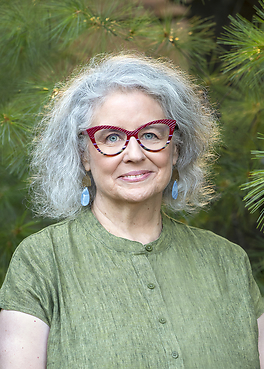Hybrid Format
Weathering: The Challenge to Reproductive Health Equity and to the Demographic Concept of "True Age Effects"
Arline Geronimus, University of Michigan
Online or at Max Planck Institute for Demographic Research, May 28, 2024

© Pink Moon Photography
As part of the Suessmilch Lecture series, Arline Geronimus from the University of Michigan will speak about Weathering: The Challenge to Reproductive Health Equity and to the Demographic Concept of "True Age Effects".
The event begins at 3 pm CEST on May 28, 2024.
Abstract
It is common for demographers and maternal and child health researchers concerned with the role of fertility timing in birth outcomes to operate under the “true age effects” paradigm. While not eschewing the existence of social, cultural and economic influences on maternal and infant health, Dorothy Nortman’s 1974 conclusion that “Biological (developmental) processes are the chief determinants of the age pattern of reproductive risk” continues to be taken as axiomatic. Conventional wisdom includes that levels of poor birth outcome may vary across populations subjected to different life circumstances, but underlying them is a J, U, or reverse J-shape pattern of risk dictated by reproductive immaturity, maturity, and senescence. In a 1987 article published in Population and Development Review, I challenged the perspective that early (teenage) fertility is inherently detrimental to maternal and infant health in the context of a broader interest in understanding and eliminating birth outcome inequities between Black and White Americans. I asked demographers and other social and biomedical scientists estimating birth outcome equations to reopen the question, “What do maternal age variables measure?” My colleagues and I have continued to take the challenge seriously, ultimately proposing Weathering theory and empirically testing working hypotheses that flow from it. In this lecture, I outline Weathering theory, report on the most recent empirical findings applying it to the risk of maternal and infant birth outcomes by maternal age, and discuss their implications for continuing scholarship on and policy recommendations to promote maternal and infant health equity. I argue that rather than being embellishments to an underlying universal maternal age pattern of risk, structurally patterned and intersecting oppressions transform the correspondence of chronological age to biological age through weathering.
About the Speaker
Dr. Geronimus is jointly appointed as a Professor at the University of Michigan’s School of Public Health and a Research Professor at the Population Studies Center at the UM Institute for Social Research. She studied Political Theory at Princeton University where she also worked at the Office of Population Research, and trained in Public Health and Medicine at Harvard University. Elected to membership in the National Academy of Medicine, she originated Weathering Theory, positing members of oppressed social identity groups pay a high price in their health as they engage structured injustice and persevere in their daily round. Pointing to collective strategies marginalized groups employ to mitigate, resist, or undo the adverse impacts of weathering for family economies and caretaking systems, she considers the trade-offs these strategies reflect and the perturbations normal public policy informed by demographic research can cause in such autonomous protections.
Participation
Please register via this survey for online participation. The Zoom link will be sent to you afterwards. The event begins at 3 pm CEST on May 28, 2024.